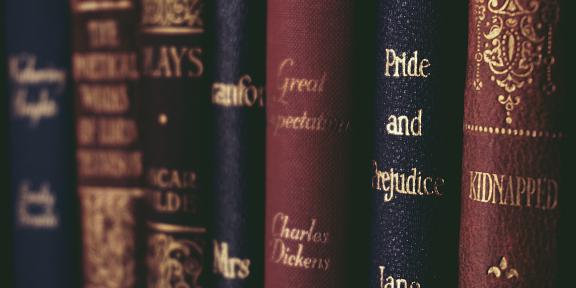The English side of the course offers you a choice from a list of papers covering all literature written in the English language from its origins in Anglo-Saxon through to works produced in English-speaking countries across the world in the present day. The Modern Language side of the course will give you practical linguistic training, encourage you to think coherently about language as a subject of study and introduce you to an extensive and fascinating field of Western literature and thought.
The English Faculty is the largest in the UK, and the Modern Languages Faculty is one of the largest, with both faculties including major scholars in all areas of the respective subjects. Students thus have access to a range of expert tutors. Library provision at Oxford is excellent: all students have access to the English Faculty Library, the Taylor Institution Library (for languages), the Bodleian Library and their own college libraries.
The course is extremely flexible. In the first year you will do practical work in your chosen language and study a selection of important texts from its literature. On the English side, you will be introduced to the conceptual and technical tools used in the study of language and literature, and to a wide range of different critical assumptions and approaches. You will also do tutorial work on either early medieval, Victorian or modern literature. In the second year, a wide range of options opens up for you. Language work in your modern language will continue and you will study literature from a wide range of periods in English and in your language. The third year of this four-year course is spent abroad – see below. On your return, you will choose from a range of special option papers in both English and Modern Languages, and in comparative literature.
EML Careers
Graduates in English and Modern Languages go on to careers in fields including broadcasting, publishing, teaching, journalism, the theatre, administration, management, advertising, translation, librarianship and law. Knowledge of a modern language opens up opportunities for internationally focused careers and working with international companies or organisations.
Related courses
Students interested in this course might also like to consider other English courses, other language courses or History of Art.
International opportunities
Students spend a year abroad before their final year. Please see the Modern Languages course page for more information.
A typical weekly timetable
Most students will have one or two tutorials a week as well as compulsory language classes. Typically, students also attend three to four lecture courses per subject.
1st year |
|
|
Courses Six papers are taken:
|
Assessment Six written papers form the First University Examination including a submitted portfolio of two essays for All exams must be passed, but marks do not count towards the final degree. |
2nd and 4th years (3rd year is spent abroad) |
|
|
Courses
The options listed above are illustrative and may change. More information about current options is available on the English and Modern Languages websites. |
Assessment Papers will be examined by extended essays over the course of the second and fourth years, or by practical and written examinations at the end of your fourth year. |
The content and format of this course may change in some circumstances. Read further information about potential course changes.
